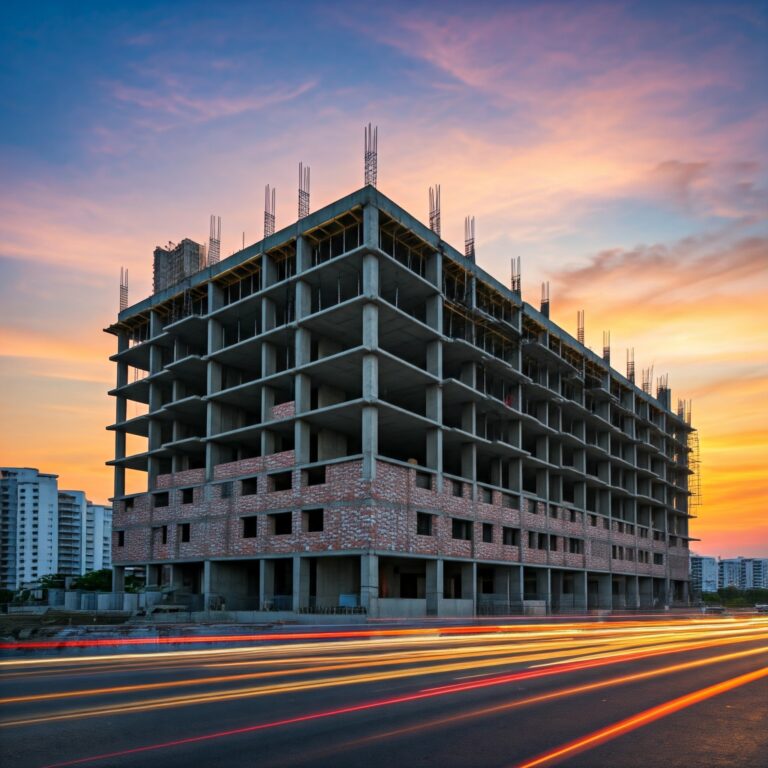The Haryana government has decided to revoke its earlier decision to pause the implementation of the S+4 floor policy. This decision was announced by the Department of Town and Country Planning (DTCP) after the department received a number of representations from developers and other stakeholders.
The S+4 floor policy allows developers to construct buildings with a stilt plus four floors. This policy was aimed at increasing the availability of affordable housing in the state. However, the policy was put on hold in 2020 after the department received complaints from residents’ associations and environmental groups.
These groups expressed strong opposition to the S+4 floor policy, contending that its implementation could significantly exacerbate existing issues related to traffic congestion within the city. They highlighted the potential for a substantial increase in the number of vehicles on the road, as the higher density of occupants in new developments would likely lead to more cars, public transport use, and delivery vehicles. This surge in traffic could create bottlenecks, particularly in already busy areas, resulting in longer commute times for residents and increased frustration for all road users.
Additionally, the critics pointed out the environmental impact of such a policy, warning that a rise in vehicle emissions would contribute to worsening air quality and increased pollution levels. This, they argued, could have detrimental effects on public health, particularly for vulnerable populations, including children and the elderly. The potential increase in noise pollution from both traffic and construction activities was another concern, as it could diminish the quality of life for those living in proximity to high-rise developments.
Beyond traffic and pollution issues, the groups raised urgent concerns about the S+4 floor policy’s potential strain on the city’s infrastructure. They emphasized that essential services, such as water supply, waste management, and power supply, might struggle to keep pace with increased demand from higher-density living. This pressure could lead to infrastructure failures. It could also cause a decline in service quality, impacting residents’ daily lives and overall satisfaction with their surroundings.
Moreover, safety was a significant concern raised by these advocacy groups, particularly regarding the living conditions in high-rise buildings. They worried about potential hazards such as fire safety, emergency evacuation procedures, and the structural integrity of taller buildings. High-rise living often means that residents are farther from ground-level safety resources, making emergency response more complicated and raising alarms about residents’ ability to evacuate quickly in the event of an emergency.
The DTCP has now decided to revoke the pause on the S+4 floor policy after receiving a number of representations from developers. These developers argued that the policy is necessary to meet the growing demand for housing in the state. They also pointed out that the policy has been successfully implemented in other parts of the country.
The DTCP has also taken steps to address the concerns raised by residents’ associations and environmental groups. The department has said that it will work with local authorities to ensure that the infrastructure in the state is able to cope with the increased construction activity. It has also said that it will take steps to ensure the safety of residents in high-rise buildings.
The decision to revoke the pause on the S+4 floor policy has been welcomed by developers. They say that the policy will help to boost the state’s economy and create jobs. They also say that it will help to meet the growing demand for housing in the state.
However, the decision has also been criticized by some residents’ associations and environmental groups. They say that the policy will lead to increased traffic congestion, pollution, and strain on the city’s infrastructure. They also raise concerns about the safety of residents in high-rise buildings.
The DTCP has said that it is committed to addressing the concerns of all stakeholders. It has said that it will work with local authorities to ensure that the infrastructure in the state is able to cope with the increased construction activity. It has also said that it will take steps to ensure the safety of residents in high-rise buildings.
The S+4 floor policy is now expected to be implemented in the state from January . This will allow developers to start construction on new projects that have been approved under the policy.
The S+4 floor policy is a controversial issue in Haryana. However, the government’s decision to revoke the pause on the policy is likely to be welcomed by developers. It is also likely to lead to an increase in construction activity in the state.
Conclusion
The Haryana government’s decision to revoke the pause on the S+4 floor policy is a significant development. It is likely to have a major impact on the state’s real estate market. Developers are likely to welcome the decision, as it will allow them to start construction on new projects. However, the decision is also likely to be criticized by some residents’ associations and environmental groups. They say that the policy will lead to increased traffic congestion, pollution, and strain on the city’s infrastructure. The DTCP has said that it is committed to addressing the concerns of all stakeholders. It is now up to the department to ensure that the policy is implemented in a way that benefits the state and its people.


Add a comment